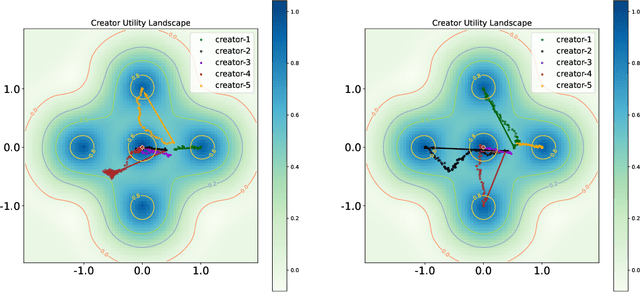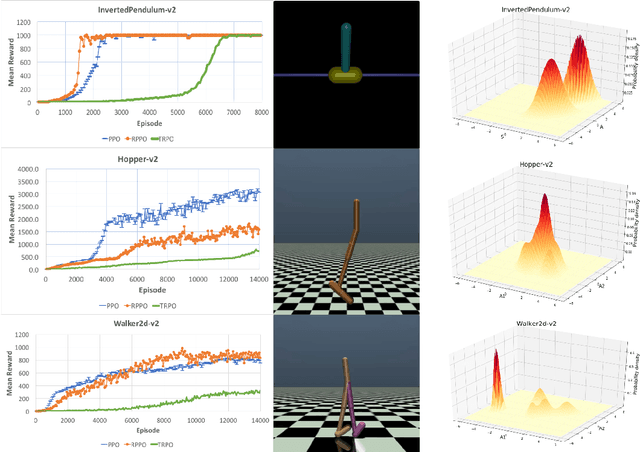Mingzhe Wu
User Welfare Optimization in Recommender Systems with Competing Content Creators
Apr 28, 2024



Abstract:Driven by the new economic opportunities created by the creator economy, an increasing number of content creators rely on and compete for revenue generated from online content recommendation platforms. This burgeoning competition reshapes the dynamics of content distribution and profoundly impacts long-term user welfare on the platform. However, the absence of a comprehensive picture of global user preference distribution often traps the competition, especially the creators, in states that yield sub-optimal user welfare. To encourage creators to best serve a broad user population with relevant content, it becomes the platform's responsibility to leverage its information advantage regarding user preference distribution to accurately signal creators. In this study, we perform system-side user welfare optimization under a competitive game setting among content creators. We propose an algorithmic solution for the platform, which dynamically computes a sequence of weights for each user based on their satisfaction of the recommended content. These weights are then utilized to design mechanisms that adjust the recommendation policy or the post-recommendation rewards, thereby influencing creators' content production strategies. To validate the effectiveness of our proposed method, we report our findings from a series of experiments, including: 1. a proof-of-concept negative example illustrating how creators' strategies converge towards sub-optimal states without platform intervention; 2. offline experiments employing our proposed intervention mechanisms on diverse datasets; and 3. results from a three-week online experiment conducted on a leading short-video recommendation platform.
Neural Frailty Machine: Beyond proportional hazard assumption in neural survival regressions
Mar 18, 2023Abstract:We present neural frailty machine (NFM), a powerful and flexible neural modeling framework for survival regressions. The NFM framework utilizes the classical idea of multiplicative frailty in survival analysis to capture unobserved heterogeneity among individuals, at the same time being able to leverage the strong approximation power of neural architectures for handling nonlinear covariate dependence. Two concrete models are derived under the framework that extends neural proportional hazard models and nonparametric hazard regression models. Both models allow efficient training under the likelihood objective. Theoretically, for both proposed models, we establish statistical guarantees of neural function approximation with respect to nonparametric components via characterizing their rate of convergence. Empirically, we provide synthetic experiments that verify our theoretical statements. We also conduct experimental evaluations over $6$ benchmark datasets of different scales, showing that the proposed NFM models outperform state-of-the-art survival models in terms of predictive performance. Our code is publicly availabel at https://github.com/Rorschach1989/nfm
Riemannian Proximal Policy Optimization
May 19, 2020

Abstract:In this paper, We propose a general Riemannian proximal optimization algorithm with guaranteed convergence to solve Markov decision process (MDP) problems. To model policy functions in MDP, we employ Gaussian mixture model (GMM) and formulate it as a nonconvex optimization problem in the Riemannian space of positive semidefinite matrices. For two given policy functions, we also provide its lower bound on policy improvement by using bounds derived from the Wasserstein distance of GMMs. Preliminary experiments show the efficacy of our proposed Riemannian proximal policy optimization algorithm.
 Add to Chrome
Add to Chrome Add to Firefox
Add to Firefox Add to Edge
Add to Edge